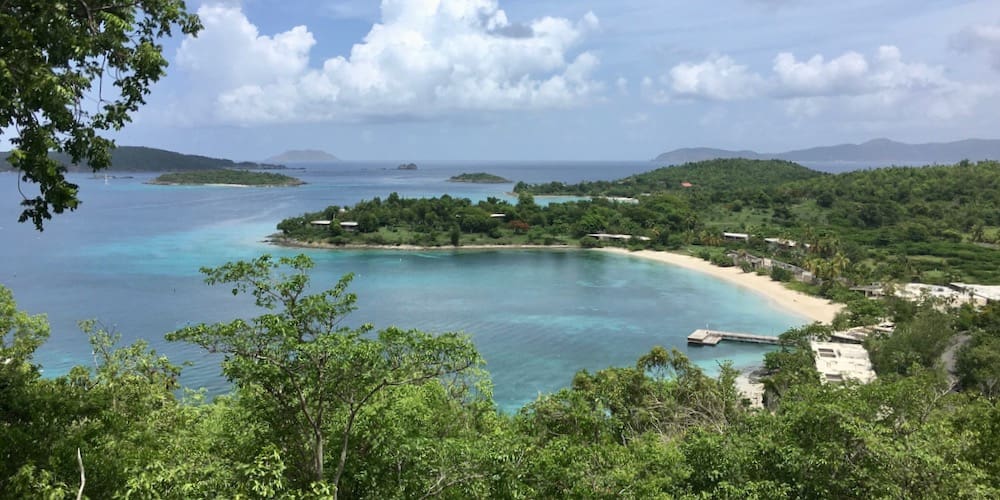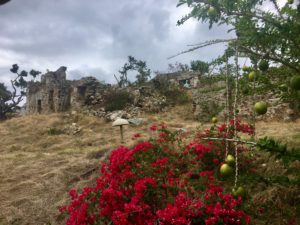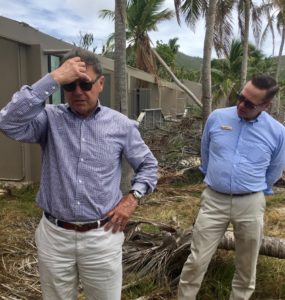
Caneel Bay Resort, located within the Virgin Islands National Park, has been known for its extraordinary beauty since it opened in 1956. Few people, however, know that seven sites within the property have been contaminated over the years by pollutants that are hazardous to creatures on land and in the sea.

The extent of the contamination is unknown because CBI Acquisitions, LLC, the owner of Caneel Bay Resort, has rebuffed attempts by the National Park Service to complete mandated environmental assessments, according to Todd Sampsell, president of the Friends of the Virgin Islands National Park.
“This work has been stalled by CBI Acquisitions, LLC, through attempts to prevent National Park Service staff and contractors from entering the property to complete the work,” Sampsell said.
Rafe Boulon, a member of the board of the Friends and former chief of Resource Management with the Virgin Islands National Park, said he remembered when the hazmat studies had just started.
“It was after the results from the initial studies showed a need for more in-depth contaminant work that Caneel started stonewalling,” he said.
The contamination studies, which have been pending since 2014, focused on sites including engineering and maintenance areas, grounds and landscaping storage sheds, the wastewater treatment plant and debris landfill.
On Wednesday, the Friends of the Virgin Islands National Park sent a letter urging local officials, including Virgin Islands senators and Gov. Albert Bryan Jr., to take action.

Specifically, the letter asked the Virgin Islands officials to put pressure on “U.S. Secretary of the Interior David L. Bernhardt to complete characterization and planning for the remediation of the environmental contamination documented on the Caneel Bay property on St. John.”
CBI Acquisitions’ control of the resort is set to expire in 2023, so the Friends of the Park’s letter comes at a time when the future of the Caneel Bay Resort is being negotiated by the National Park Service and CBIA.
The status of the negotiations, however, has been kept from the public.

When the Source asked CBIA to respond to the Friends’ letter and comment on the future of the resort, Patrick Kidd, director of marketing and sales for Caneel Bay Resort, wrote back, “We appreciate the invitation, however, do not wish to make any statement at this time.”
The National Park Service’s response to a request for a statement offered few details.
“Environmental stewardship and the recovery of the Caneel Bay Resort remains a top priority of the Department of the Interior and to the residents of the island of St. John,” said Stephanie Roulett, acting chief spokesperson and chief of public affairs for the National Park Service. “The National Park Service is in contact with the resort owner and is hopeful the issues presented by the closed resort can be addressed.”
Roulett referred to the resort as “closed” because most of the buildings have been in shambles since Hurricane Irma ravaged the Virgin Islands in September 2017.
In April 2018, CBIA’s managing member Gary Engle said that he could get a portion of the resort up and running within 18 months if CBIA was granted a 60-year lease on the property. Engle worked with V.I. Delegate Stacey Plaskett to propose a bill in the House of Representatives to bypass negotiations with the National Park Service, but public outcry followed and the bill expired at the end of the congressional session.
Since the hurricane, the resort has remained shuttered, and public access through the property to National Park beaches has been strictly limited. There have been a few exceptions. Following the storm, Caneel Bay offered temporary accommodations in less damaged rooms to emergency workers who arrived on the island. In July 2018, a concessionaire was allowed to reopen a water sports center and beach bar at Honeymoon Beach.

In July 2020, CBIA allowed the V.I. Department of Tourism to film some July 4th Festival events from their beach. They also announced that ZoZo’s, a popular upscale restaurant that had operated prior to the storm, would reopen in December at a new beachfront location. Some took this as a sign that negotiations between CBIA and the National Park Service were going well.
Caneel Bay Resort was built by Laurance Rockefeller in 1956 when he helped establish the Virgin Islands National Park. The resort sits on 170 acres of land within the park’s boundaries and is subject to strict development guidelines by the National Park Service under a Retained Use Estate agreement, or RUE.
In 2010, the U.S. Congress passed a bill allowing CBIA to negotiate with the National Park Service for a 40-year extension of the RUE. Over the years, however, communications soured, and Engle, CBIA’s managing member, said negotiations completely broke down by 2016.
In a public letter issued in August, the Friends of the Virgin Islands National Park said efforts to resolve the environmental concerns should be stepped up, but they also said negotiations with CBIA to extend the RUE should be extinguished.
They gave several reasons, including that CBIA had failed to preserve and maintain the property according to Rockefeller’s directives in the RUE.
In Wednesday’s letter, Sampsell said, “Now CBIA wants to hurry negotiations on a non-competitive 40-year lease before the existing Retained Use Estate [RUE] expires in 2023. … To date, full assessment and characterization of the contaminants on the property has not been done. No plan for remediation and protection of the residents and visitors of St. John, and no plan to protect our economically and ecologically important marine resources has been completed.”
Sampsell’s letter listed seven sites on the Caneel Bay property that “had high levels of one or more of Semi-Volatile Organic Compounds, arsenic, mercury, organochlorine pesticides, Volatile Organic Compounds, benzene, ethylbenzene, naphthalene, 1- and 2-methylnaphthalene, organophosphorus and organochlorine pesticides, selenium, silver, benzo(b)fluoranthene, dieldrin [pesticide] and PCBs.”
Boulon, who has a master’s degree in marine and environmental science, said it was important to continue the studies to determine the extent of the contamination at Caneel Bay.
He said that chemicals, including herbicides, pesticides, petroleum products or fertilizers, can wash into the ocean and damage corals or other marine life.
“And on land these [chemicals] can disrupt insect-dependent food chains that can affect reptiles and birds, along with secondary toxicity of something eating a poisoned prey item.”
Boulon doesn’t buy the argument that the pollutants could have been there prior to CBIA’s ownership of the property in 2003. “It was CBIA’s responsibility when they took over the RUE to do a hazmat survey and require the previous Retained Use Estate holder to clean it up. Same as it is now their responsibility as the current RUE holder to clean it up for the National Park Service.”





